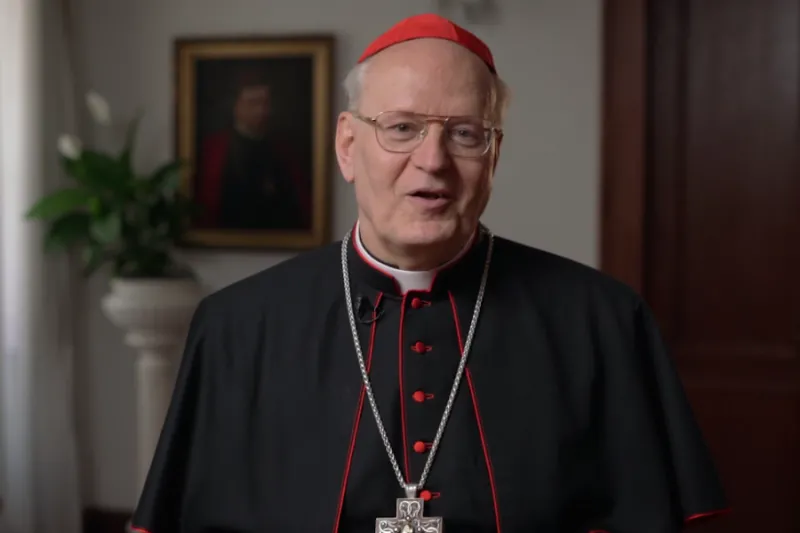
Budapest, Hungary, Jun 17, 2021 / 07:05 am (CNA).
A cardinal has said that the lyrics of the official hymn of this year’s International Eucharistic Congress in Budapest helped Hungary’s Catholics survive war and communism.
In a video welcoming the adoption of the hymn for the Sept. 5-12 meeting, Cardinal Péter Erdő noted that the lyrics date back to the last time that the Hungarian capital hosted an International Eucharistic Congress in 1938.
“These days, the hymn of the Eucharistic Congress will sound again. The lyrics of this song served in 1938 already as the hymn of the International Eucharistic Congress in Budapest,” he said.
“Its closing lines and chorus are unforgettable, for we ask Christ: ‘Bless this earth with peace and honor, bring us to Thy holy tryst.’”
Commenting on the hymn’s historical context, the archbishop of Esztergom-Budapest said: “This was very topical at the time, on the eve of World War II. And this gave us, devout Catholics, Hungarians, strength during the war, as well as later in the decades of communism and oppression.”
Hungary has a population of 9.8 million, 62% of whom are Catholic. The country, which borders Austria, Serbia, Croatia, Slovenia, Romania, Ukraine, and Slovakia, was occupied by the Nazis in 1944-1945. After World War II, communists took power, ruling until 1989.
Erdő recalled that the hymn was also sung during the papal visit to Romania in 2019, when Pope Francis celebrated Mass at the Marian Shrine of Șumuleu-Ciuc in Transylvania in the presence of Hungarian pilgrims.
“But this beautiful song still lives on today not only in the memory of Hungarians, I think, since we sang this anthem together as a crowd of 100,000 in 2019 in Csíksomlyó at the Holy Mass celebrated by Pope Francis,” the 68-year-old cardinal said.
The 52nd International Eucharistic Congress was originally due to take place in 2020 but was postponed to 2021 due to the coronavirus pandemic.
Pope Francis is scheduled to be the principal celebrant of the closing Mass in Heroes’ Square at 11:30 a.m. on Sept. 12.
The official anthem has been recorded in both English and Hungarian, performed by the three young singers Bogi Nagy, Máté Czinke, and Gergő Dánielfy. The hymn’s title is “Győzelemről énekeljen” (“Sing the Triumph”).
Erdő said: “The message of this hymn is still relevant today as Christ wants to unite and embrace all nations in brotherly love.”
“This is the melody that is now resounding, but in a new orchestration. In a way that I think it must be able to touch even the youngest, the most distant, and capture their hearts.”
“And the message is essential: Christ as a brother brings together all nations in love; he wants to unite all mankind in love and happiness.”
If you value the news and views Catholic World Report provides, please consider donating to support our efforts. Your contribution will help us continue to make CWR available to all readers worldwide for free, without a subscription. Thank you for your generosity!
Click here for more information on donating to CWR. Click here to sign up for our newsletter.




Leave a Reply